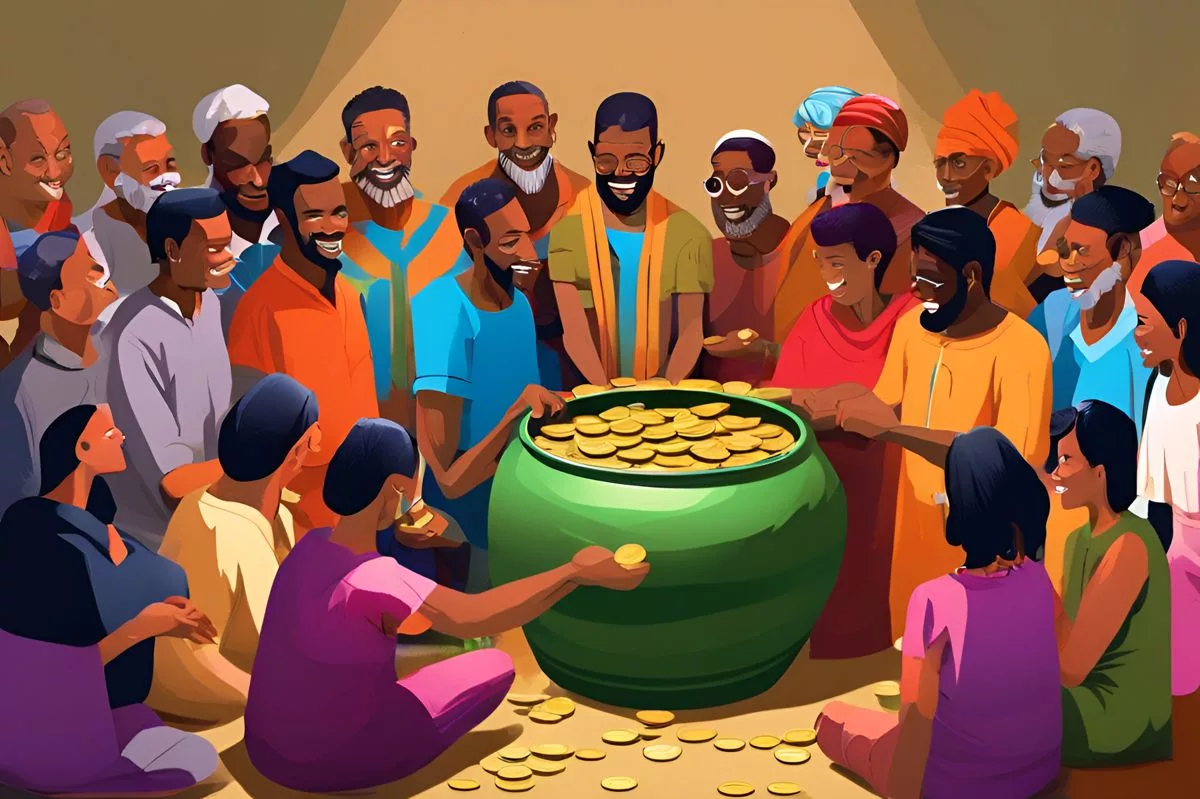Capitec Bank is shaking things up in South Africa by embracing stokvels, which are community savings groups where people pool their money to achieve shared financial goals. These groups have deep cultural roots and provide a lifeline, especially for those facing tough times. By partnering with stokvels, Capitec aims to enhance trust and security, helping members save for things like property or funeral costs. This exciting move not only supports traditional saving practices but also opens the door for more financial growth and education in local communities.
What are stokvels and how do they work?
Stokvels are communal savings groups in South Africa where members pool money for shared financial goals. Participants contribute funds regularly, receiving lump-sum payouts as agreed. Capitec Bank’s involvement aims to enhance security and trust, transforming stokvels into viable financial solutions for the community.
Embracing a Cultural Phenomenon
In 2025, Capitec Bank will make waves in South Africa by incorporating stokvels into their financial offerings, marking a transformative step for community savings. Stokvels, as defined by the National Stokvel Association of South Africa (NASASA), are communal savings groups where individuals pool money into a shared fund. This practice holds deep cultural significance in South Africa, thriving particularly in townships and informal settlements. Given their widespread acceptance, it is no surprise that Capitec, under the leadership of CEO Gerrie Fourie, plans to integrate stokvels into their services, a move highlighted in a conversation with Biznews founder Alec Hogg.
Stokvels offer a practical avenue for saving and investing with minimal financial burden. Members contribute to a collective fund, which is then distributed at agreed intervals. For many, especially the elderly or those facing financial instability and relying on government grants, stokvels provide a crucial financial lifeline. Participants benefit from receiving lump-sum payouts, either in cash or through bank deposits, offering a path to greater financial security.
The versatility of stokvels extends beyond simple savings models. Property stokvels enable co-investment in real estate, making it possible for individuals to own property they couldn’t afford alone. Funeral stokvels help families manage funeral costs, covering expenses like coffins and other necessities. There are even stokvels dedicated to everyday essentials, such as groceries. Essentially, stokvels can be tailored to meet a multitude of financial needs, and soon, Capitec will facilitate these community-driven savings initiatives.
Navigating Trust and Security
Despite their benefits, stokvels can sometimes be met with skepticism. The informal nature of these groups raises concerns about reliability and trust. NASASA warns of potential fraudulent activities within certain stokvels, emphasizing the need for secure alternatives. Capitec’s initiative aims to fill this gap by providing a trustworthy platform for stokvels. While Capitec isn’t the first to explore this area—banks like Standard Bank, FNB, and Nedbank have also ventured into similar territories—their involvement is a significant step forward.
Stokvels offer financially disadvantaged individuals the opportunity to save with contributions as low as R100 weekly, fortnightly, or monthly. These contributions promise returns and often come with insurance coverage, providing added security for members. Capitec’s expanding clientele, which now includes 23.2 million people largely from middle to low-income brackets, suggests a strategic alignment with community-based savings efforts. Following impressive financial results, with a 36% increase in earnings, Capitec’s focus on stokvels aligns with their broader goals.
CEO Gerrie Fourie sees stokvels, also known as rotating savings and credit associations (ROSCAs), as an untapped market brimming with potential. NASASA manages around 800,000 stokvel groups, facilitating a significant financial flow of approximately R50 billion annually. This robust framework underscores the potential for growth and integration into formal banking, offering an exciting opportunity for those interested in participating.
Historical and Cultural Roots
To fully appreciate stokvels, one must delve into their historical and cultural context. Emerging from a tradition of mutual support, stokvels have been an integral part of South African society for generations. They trace their roots to indigenous practices and the economic strategies adopted by migrant laborers, who relied on these systems for financial stability during challenging times. This cultural heritage imbues stokvels with a sense of community and shared responsibility, which modern banking institutions are now eager to support.
The integration of stokvels into formal banking systems is part of a broader trend towards financial inclusion. Globally, there is a push to incorporate informal financial practices into the formal economy, thereby reaching underserved populations. By formalizing stokvels, banks like Capitec not only tap into a lucrative market but also contribute to enhancing financial inclusion across South Africa.
Adoption by formal banks could also lead to improved financial literacy among stokvel participants. As banks provide more structure and transparency, members gain a clearer understanding of financial principles and management. This educational component can empower individuals, fostering a more financially savvy populace capable of making informed decisions.
Economic Empowerment and Future Prospects
The potential impact of formal banking on stokvels extends beyond individual savings. With banks involved, stokvels can access better investment opportunities, offering members the potential for higher returns. This evolution could transform stokvels from simple savings mechanisms into robust investment vehicles, benefiting entire communities by driving economic growth and stability.
In conclusion, Capitec Bank’s decision to offer stokvels marks a pivotal moment in the landscape of community savings. By blending traditional practices with modern financial systems, banks can leverage the advantages of both, creating opportunities for growth and security in underserved communities. This integration not only enriches the financial ecosystem but also honors the cultural legacy of stokvels, ensuring their relevance and vitality for future generations.
“`markdown
FAQ
What are stokvels and how do they work?
Stokvels are communal savings groups in South Africa where members pool money for shared financial goals. Participants contribute funds regularly, receiving lump-sum payouts as agreed. Capitec Bank’s involvement aims to enhance security and trust, transforming stokvels into viable financial solutions for the community.
Why is Capitec Bank integrating stokvels into its services?
Capitec Bank is integrating stokvels to support traditional saving practices while enhancing trust and security within these community-driven initiatives. This move not only aims to provide financial growth opportunities for members but also to contribute to broader financial education in local communities.
How do stokvels contribute to financial stability for their members?
Stokvels offer a practical avenue for saving and investing with minimal financial burden. Members contribute to a collective fund, which is then distributed at agreed intervals. They serve as a crucial financial lifeline, especially for economically disadvantaged individuals and families dealing with financial instability.
What types of stokvels does Capitec support?
Capitec supports various types of stokvels, including property stokvels for co-investing in real estate, funeral stokvels for managing funeral expenses, and stokvels focused on everyday essentials like groceries. This versatility allows stokvels to meet a wide range of financial needs within the community.
How does Capitec ensure the security and reliability of stokvels?
Capitec aims to provide a trustworthy platform for stokvels, addressing concerns about the informal nature of these groups. By integrating them into formal banking systems, Capitec enhances transparency, reduces potential fraud, and offers added security features such as insurance coverage for members’ contributions.
What impact could the formalization of stokvels have on financial literacy?
The integration of stokvels into formal banking systems can improve financial literacy among participants. As banks like Capitec provide more structure and transparency, members gain a clearer understanding of financial principles, enabling them to make informed financial decisions and fostering a more financially savvy community.
“`












